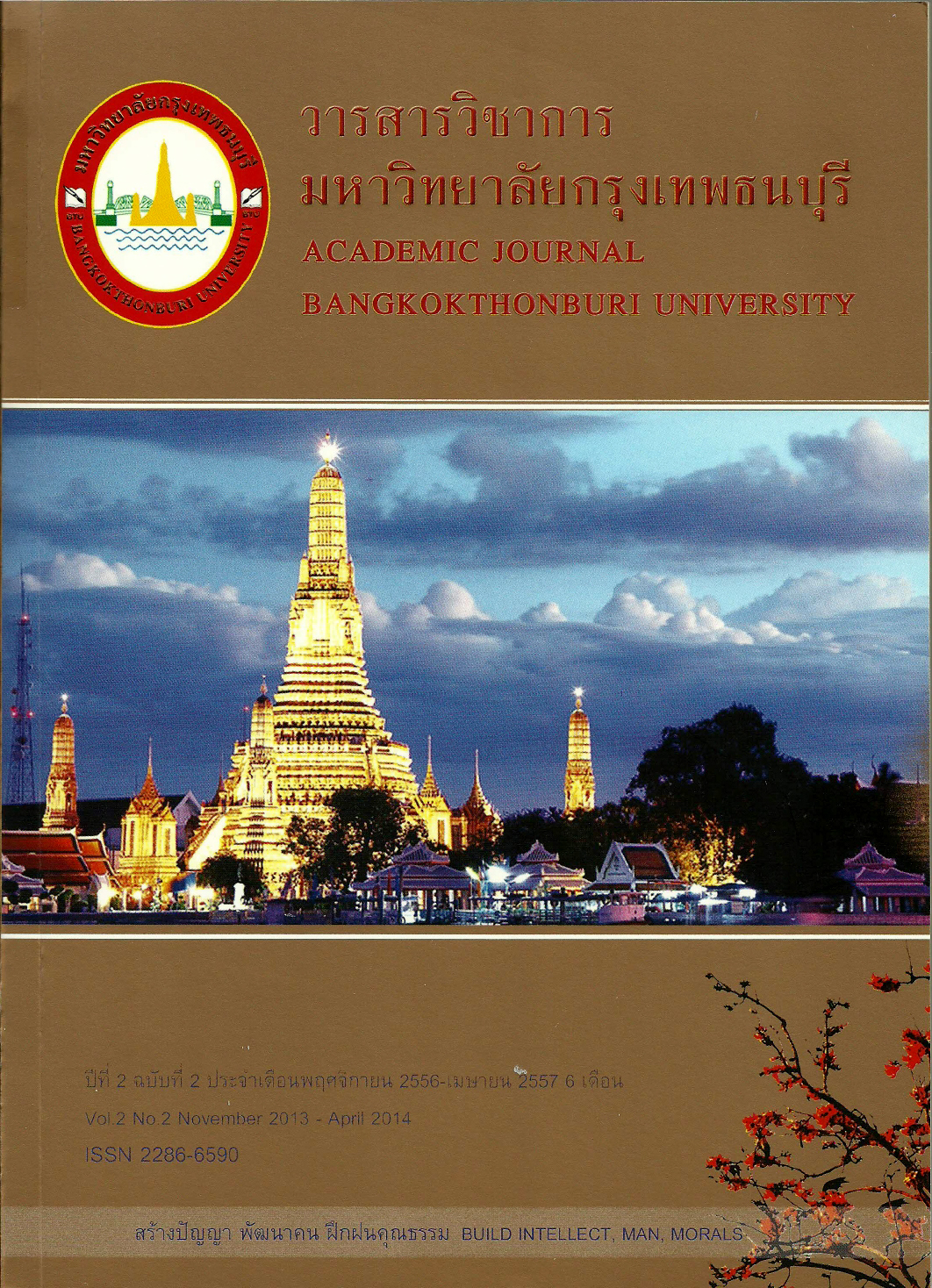ข้อเท็จจริงที่ไม่เกี่ยวกับเจตนาในการกระทำความผิดอาญา
Main Article Content
Abstract
บทความนี้ได้นำเสนอข้อถกเถียงของนักกฎหมายเกี่ยวกับแนวคิดในการให้คำอธิบายเรื่อง “ข้อเท็จจริงที่ไม่เกี่ยวกับเจตนา” ซึ่งมีอยู่สามความเห็น คือ ความเห็นแรก เห็นว่า ข้อเท็จจริงที่ไม่เกี่ยวกับ เจตนา หมายถึงข้อเท็จจริงที่กฎหมายไม่ประสงค์จะให้เจตนาคลุมไปถึง จึงเป็นข้อเท็จจริงที่เป็นเงื่อนไข แห่งความผิดหรือเงื่อนไขแห่งการลงโทษ ส่วนความเห็นที่สองเห็นว่า ข้อเท็จจริงในส่วนนี้ไม่ใช่ข้อเท็จจริง ที่เป็นองค์ประกอบของความผิดในโครงสร้างสามประการของความผิดอาญาแต่เป็นข้อเท็จจริงที่เป็นเงื่อนไข แห่งการลงโทษทางภาวะวิสัยซึ่งอยู่นอกโครงสร้างของความผิดอาญา สำหรับความเห็นที่สาม ให้เหตุผล ว่า เหตุที่เป็นข้อเท็จจริงที่ไม่เกี่ยวกับเจตนา เพราะเป็นองค์ประกอบภายนอกซึ่งมิใช่ “ข้อเท็จจริง” แต่ถือว่าเป็น “พฤติการณ์ประกอบการกระทำ” เท่านั้น ซึ่งสามารถพิจารณาได้จากการใช้ถ้อยคำในรูปแบบ ต่างๆ เช่น น่าจะเกิดความเสียหาย หรืออาจเกิดความเสียหาย เป็นต้น ผู้เขียนเห็นพ้องด้วยกับความเห็น แรก เพราะข้อเท็จจริงที่ผู้กระทำจะต้องรู้ในการกระทำความผิดโดยเจตนานั้น หมายถึง ข้อเท็จจริงที่เกี่ยวกับ ส่วนประสงค์ต่อผลหรือย่อมเล็งเห็นผลของผู้กระทำ ส่วนข้อเท็จจริงอื่นที่บุคคลสามารถได้เห็น ได้ยิน หรือ สัมผัสได้จากภายนอก แต่ไม่เกี่ยวกับส่วนประสงค์ต่อผลหรือย่อมเล็งเห็นผล ก็ยังคงถือเป็นข้อเท็จจริง อันเป็นองค์ประกอบภายนอกที่เป็นเงื่อนไขแห่งความผิดหรือเงื่อนไขแห่งการลงโทษนั่นเอง
Facts not involving intention
The objective of this article is to present the lawyers’ discussion about the facts not involving intention. There are three opinions upon these. The first opinion puts forward that facts not involving intention refer to the facts that the law does not deliberate to cover but are the facts which are the condition of guilt or punishment. While the second opinion sees that the facts in this part are not the facts which are the factors of guilt in the three structures of criminal guilt but are the facts which are the conditions for objective punishment out of the structures. For the third opinion, the facts do not involve intention are the external factors which are not ‘facts’ but only ‘circumstances of act’ which can be considered by words used in different patterns such as they are like to suffer a loss or may cause a loss etc. The writer agrees with the first opinion because in order to commit an act intentionally, the doer should know about the facts which him desired or could foreseen the effect of such doing. Other facts which a person could see, hear or contact from the circumstance not involving his desire or intention are the external factors which could deem the conditions of guilt or punishment.


